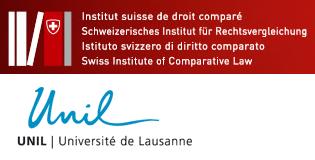Swiss Institute of Comparative Law: 24e Journée de DIP on International Family Law
 On Friday, 16th March 2012, the Swiss Institute of Comparative Law (ISDC) will host the 24th Journée de droit international privé, organised in collaboration with the University of Lausanne (Center of Comparative Law, European Law and International Law – CDCEI). The conference will analyse the latest developments in international family law, under a Swiss and an EU perspective : “Derniers développements suisses et européens en droit international privé de la famille”. Here’s the programme:
On Friday, 16th March 2012, the Swiss Institute of Comparative Law (ISDC) will host the 24th Journée de droit international privé, organised in collaboration with the University of Lausanne (Center of Comparative Law, European Law and International Law – CDCEI). The conference will analyse the latest developments in international family law, under a Swiss and an EU perspective : “Derniers développements suisses et européens en droit international privé de la famille”. Here’s the programme:
Mot de bienvenue par les organisateurs (09h00 – 09h10):
- Christina Schmid (Directrice à l’Institut suisse de droit comparé);
- Andrea Bonomi (Directeur CDCEI de l’Université de Lausanne).
Première Session (09h10 – 11h00)
Le divorce et ses conséquences:
- La révision du droit international privé du divorce et de la prévoyance professionnelle, Gian Paolo Romano (Professeur, Université de Genève);
- Le droit applicable en matière de divorce selon le règlement européen Rome III, Cristina Gonzalez Beilfuss (Professeure, Université de Barcelone);
- Le droit applicable aux conséquences patrimoniales du divorce dans les Etats de l’Union européenne, Andrea Bonomi (Professeur, Université de Lausanne)
- Discussion et questions.
11h00 – 11h30 Café offert par l’Association des Alumni et Amis de l’ISDC (AiSDC)
Deuxième Session (11h30 – 13h00)
Le mariage et les actes d’état civil:
- IPR Aspekte der Zwangsheiraten, Lukas Bopp (Dr. iur., Avocat à Bâle);
- Le droit du nom entre réformes législatives et évolution du contexte européen, Michel Montini (Avocat à Neuchâtel, Maître de conférence à l’Université de Fribourg);
- Discussion et questions.
13h00 – 14h30 Déjeuner
Troisième Session (14h30 – 16h30)
La protection des mineurs:
- Nouvelles de La Haye : la Sixième réunion de la Commission spéciale sur les Conventions de 1980 et 1996, Joëlle Küng (Collaboratrice juridique, Conférence de La Haye de droit international privé);
- La jurisprudence relative au règlement européen Bruxelles II bis, Bea Verschraegen (Professeure, Université de Vienne);
- La réforme du règlement européen Bruxelles II bis, Daria Solenik (Collaboratrice scientifique à l’ISDC);
- Discussion et questions.
The conference will be held in French and German (no translation is provided). For further information (including fees) see the conference’s programme and the registration form.
(Many thanks to Prof. Andrea Bonomi)

